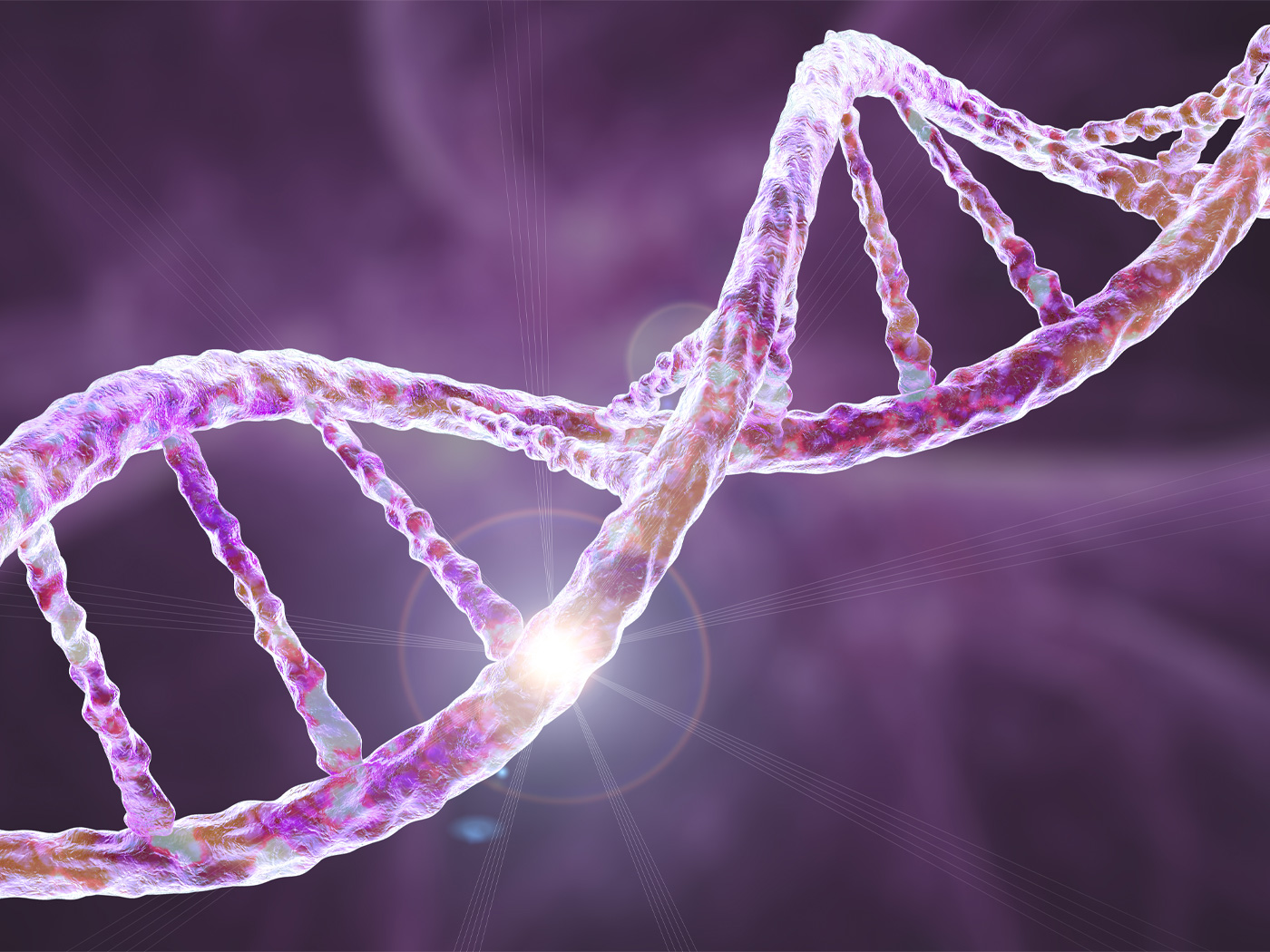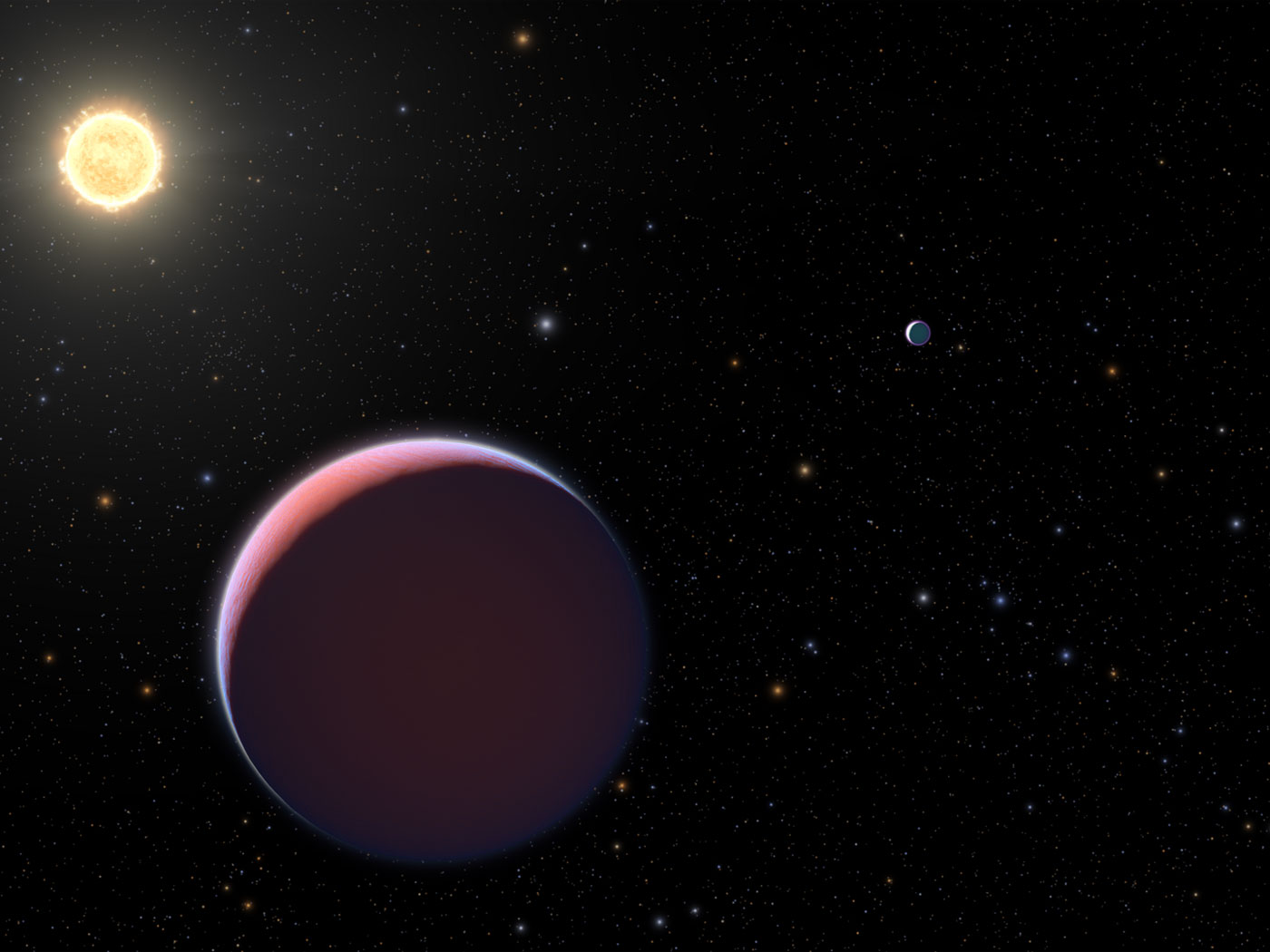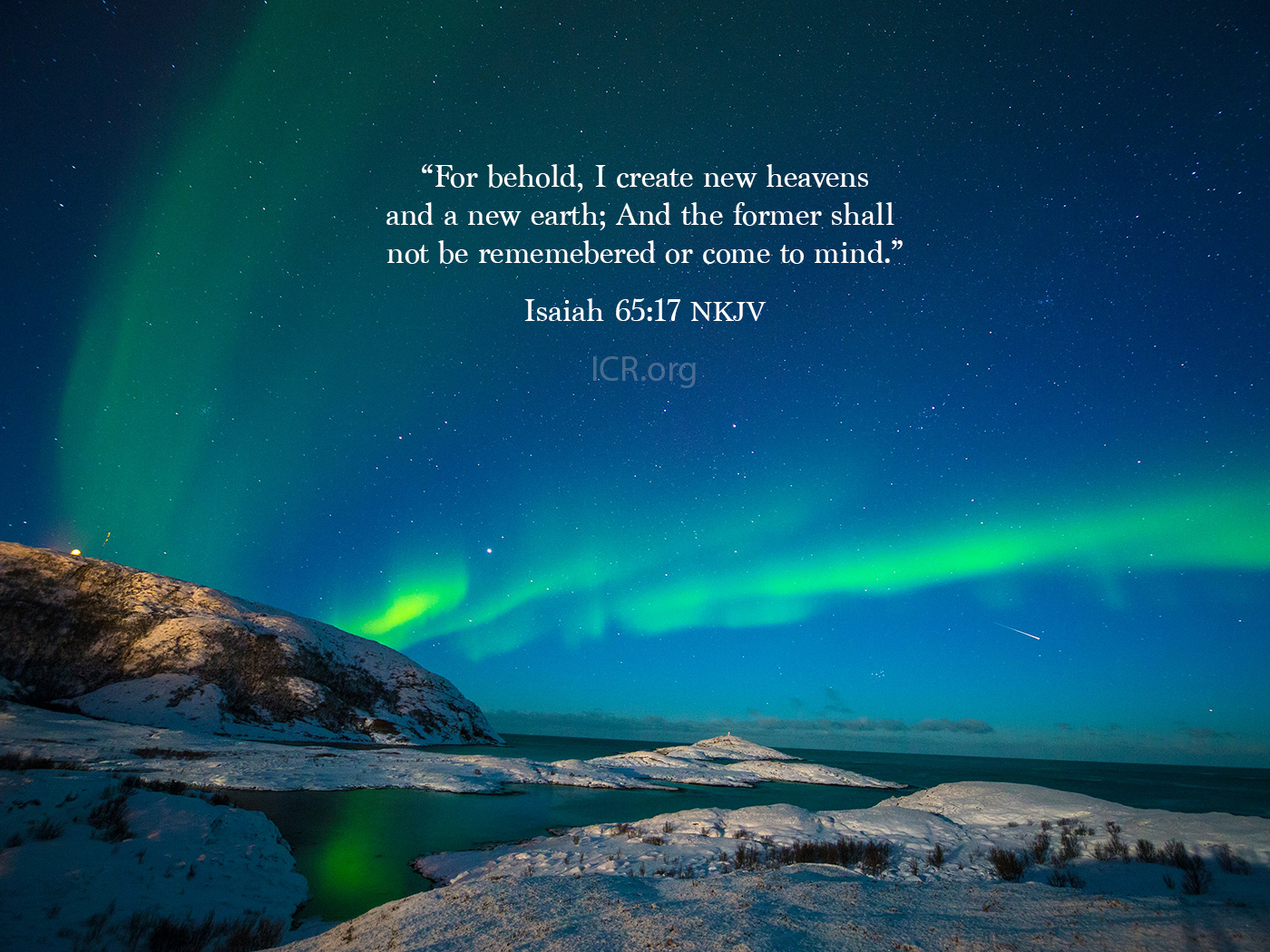The study of biological processes and phenomena indicates that significant evolutionary developments are not observable in the modern world. Similarly the great gaps in the fossil record make it extremely doubtful that any genuine evolution, as distinct from small changes within the kinds, ever took place in the past.
There is one consideration, however, which goes well beyond the implications of the above difficulties. Not only is there no evidence that evolution ever has taken place, but there is also firm evidence that evolution never could take place. The law of increasing entropy is an impenetrable barrier which no evolutionary mechanism yet suggested has ever been able to overcome. Evolution and entropy are opposing and mutually exclusive concepts. If the entropy principle is really a universal law, then evolution must be impossible.
The very terms themselves express contradictory concepts. The word "evolution" is of course derived from a Latin word meaning "out-rolling". The picture is of an outward-progressing spiral, an unrolling from an infinitesimal beginning through ever broadening circles, until finally all reality is embraced within.
"Entropy," on the other hand, means literally "in-turning." It is derived from the two Greek words en (meaning "in") and trope (meaning "turning"). The concept is of something spiraling inward upon itself, exactly the opposite concept to "evolution." Evolution is change outward and upward, entropy is change inward and downward.
That the principles of evolution and entropy are both believed to be universal principles and yet are mutually contradictory is seen from the following authoritative definitions:
"There is a general natural tendency of all observed systems to go from order to disorder, reflecting dissipation of energy available for future transformation—the law of increasing entropy." 1
As far as evolution is concerned, the classic definition of Sir Julian Huxley is as follows:
"Evolution in the extended sense can be defined as a directional and essentially irreversible process occurring in time, which in its course gives rise to an increase of variety and an increasingly high level of organization in its products. Our present knowledge indeed forces us to the view that the whole of reality is evolution—a single process of self-transformation."2
Thus, in one instance, "all observed systems ... go from order to disorder," and in the other, "the whole of reality ... gives rise to an increasingly high level of organization in its products." It seems obvious that either evolution or entropy has been vastly over-rated or else that something is wrong with the English language.
The entropy principle, however, is nothing less than the Second Law of Thermodynamics, which is as universal and certain a law as exists in science. First, however, before discussing the Second Law, we should define the First Law and, for that matter, thermodynamics itself.
Thermodynamics is a compound of two Greek words, therme ("heat") and dunamis ("power"). It is the science that speaks of the power or energy contained in heat, and its conversion to other forms of energy. The term "energy" is itself derived from the Greek word energeia ("working"), and is normally defined as "the capacity to do work." In modern scientific terminology, "energy" and "work" are considered equivalent, each measured as the product of a force times the distance through which it acts (foot-pounds, in the English system of dimensions). Something which has "energy" has the "capacity to do work" ... that is, the capacity to exert a force through a distance."
The concept of "power" is closely related to that of "energy" except that the time factor must also be taken into account. Power is the work done, or the energy expended to do the work, per unit of time measured in foot-pounds per second.
The First Law of Thermodynamics
Since all processes are fundamentally energy conversion processes, and since everything that happens in the physical universe is a "process" of some kind, it is obvious why the Two Laws of Thermodynamics are recognized as the most universal and fundamental of all scientific laws. Everything that exists in the universe is some form of energy, and everything that happens is some form of energy conversion. Thus the Laws which govern energy and energy conversion are of paramount importance in understanding the world in which we live.
Isaac Asimov defines the First Law as follows:
"To express all this, we can say: ‘Energy can be transferred from one place to another, or transformed from one form to another, but it can be neither created nor destroyed.’ Or we can put it another way: ‘The total quantity of energy in the universe is constant.’ When the total quantity of something does not change, we say that it is conserved. The two statements given above, then, are two ways of expressing ‘the law of conservation of energy.’ This law is considered the most powerful and most fundamental generalization about the universe that scientists have ever been able to make."3
Asimov makes a very interesting point when he says concerning this Law: "No one knows why energy is conserved."4 He should have said, of course, that science cannot tell us why energy is neither created nor destroyed. The Bible, however, does give us this information.
The reason why no energy can now be created is because only God can create energy and because God has "rested from all His work which He created and made" (Genesis 2:3). The reason why energy cannot now be destroyed is because He is now "upholding all things by the word of His power" (Hebrews 1:3). "I know that, whatsoever God doeth, it shall be forever: nothing can be put to it, nor anything taken from it" (Ecclesiastes 3:14).
The Second Law in Classical Thermodynamics
The First Law is itself a strong witness against evolution, since it implies a basic condition of stability in the universe. The fundamental structure of the cosmos is one of conservation, not innovation. However, this fact in itself is not impressive to the evolutionist, as he merely assumes that the process of evolution takes place within the framework of energy conservation, never stopping to wonder where all the energy came from in the first place nor how it came to pass that the total energy was constant from then on.
It is the Second law, however, that wipes out the theory of evolution. There is a universal process of change, and it is a directional change, but it is not an upward change.
In so-called classical thermodynamics, the Second Law, like the First, is formulated in terms of energy.
"It is in the transformation process that Nature appears to exact a penalty and this is where the second principle makes its appearance. For every naturally occurring transformation of energy is accompanied, somewhere, by a loss in the availability of energy for the future performance of work."5
In this case, entropy can be expressed mathematically in terms of the total irreversible flow of heat. It expresses quantitatively the amount of energy in an energy conversion process which becomes unavailable for further work. In order for work to be done, the available energy has to "flow" from a higher level to a lower level. When it reaches the lower level, the energy is still in existence, but no longer capable of doing work. Heat will naturally flow from a hot body to a cold body, but not from a cold body to a hot body.
For this reason, no process can be 100% efficient, with all of the available energy converted into work. Some must be deployed to overcome friction and will be degraded to non-recoverable heat energy, which will finally be radiated into space and dispersed. For the same reason a self-contained perpetual motion machine is an impossibility.
Since, as we have noted, everything in the physical universe is energy in some form and, since in every process some energy becomes unavailable, it is obvious that ultimately all energy in the universe will be unavailable energy, if present processes go on long enough. When that happens, presumably all the various forms of energy in the universe will have been gradually converted through a multiplicity of processes into uniformly (that is, randomly) dispersed heat energy. Everything will be at the same low temperature. There will be no "differential" of energy levels, therefore no "gradient" of energy to induce its flow. No more work can be done and the universe will reach what the physicists call its ultimate "heat death."
Thus, the Second Law proves, as certainly as science can prove anything whatever, that the universe had a beginning. Similarly, the First Law shows that the universe could not have begun itself. The total quantity of energy in the universe is a constant, but the quantity of available energy is decreasing. Therefore, as we go backward in time, the available energy would have been progressively greater until, finally, we would reach the beginning point, where available energy equaled total energy. Time could go back no further than this. At this point both energy and time must have come into existence. Since energy could not create itself, the most scientific and logical conclusion to which we could possibly come is that: "In the beginning, God created the heaven and the earth."
The evolutionist will not accept this conclusion, however. He hypothesizes that either: (1) some natural law canceling out the Second Law prevailed far back in time, or (2) some. natural law canceling out the Second Law prevails far out in space.
When he makes such assumptions, however, he is denying his own theory, which says that all things can be explained in terms of presently observable laws and processes. He is really resorting to creationism, but refuses to acknowledge a Creator.
Entropy and Disorder
A second way of stating the entropy law is in terms of statistical thermodynamics. It is recognized today that not only are all scientific laws empirical but also that they are statistical. A great number of individual molecules, in a gas for example, may behave in such a way that the over-all aspects of that gas produce predictable patterns in the aggregate, even though individual molecules may deviate from the norm. Laws describing such behavior must be formulated statistically, or probabilistically, rather than strictly dynamically. The dynamical laws then can theoretically be deduced as limiting cases of the probabilistic statements.
In this context entropy is a probability function related to the degree of disorder in a system. The more disordered a system may be, the more likely it is.
"All real processes go with an increase of entropy. The entropy also measures the randomness, or lack of orderliness of the system; the greater the randomness, the greater the entropy."6
Note again the universality expressed here—all real processes. Isaac Asimov expresses this concept interestingly as follows:
"Another way of stating the Second Law then is: ‘The universe is constantly getting more disorderly!’ Viewed that way, we can see the Second Law all about us. We have to work hard to straighten a room, but left to itself it becomes a mess again very quickly and very easily. Even if we never enter it, it becomes dusty and musty. How difficult to maintain houses, and machinery, and our own bodies in perfect working order; how easy to let them deteriorate. In fact, all we have to do is nothing, and everything deteriorates, collapses, breaks down, wears out, all by itself and that is what the Second Law is all about."7
Remember this tendency from order to disorder applies to all real processes. Real processes include, of course, biological and geological processes, as well as chemical and physical processes. The interesting question is: "How does a real biological process, which goes from order to disorder, result in evolution, which goes from disorder to order?" Perhaps the evolutionist can ultimately find an answer to this question, but he at least should not ignore it, as most evolutionists do.
Especially is such a question vital, when we are thinking of evolution as a growth process on the grand scale from atom to Adam and from particle to people. This represents an absolutely gigantic increase in order and complexity, and is clearly out of place altogether in the context of the Second Law.
Footnotes
1 . R. B. Lindsay: "Physics—To What Extent Is It Deterministic?" American Scientist, Vol. 56, Summer 1968, p. 100.2. Julian Huxley: "Evolution and Genetics" in What is Man? (Ed. by J. R. Newman, New York, Simon and Schuster, 1955), p.278.
3. Isaac Asimov: "In the Game of Energy and Thermodynamics You Can’t Break Even," Smithsonian Institute Journal, June, 1970, p. 6.
4. Ibid.
5. R. B. Lindsay: "Entropy Consumption and Values in Physical Science," American Scientist, Vol. 47, September, 1959, p. 378.
6. Harold Blum: "Perspectives in Evolution," American Scientist, October, 1955, p. 595.
7. Isaac Asimov: op cit, p.10.


















